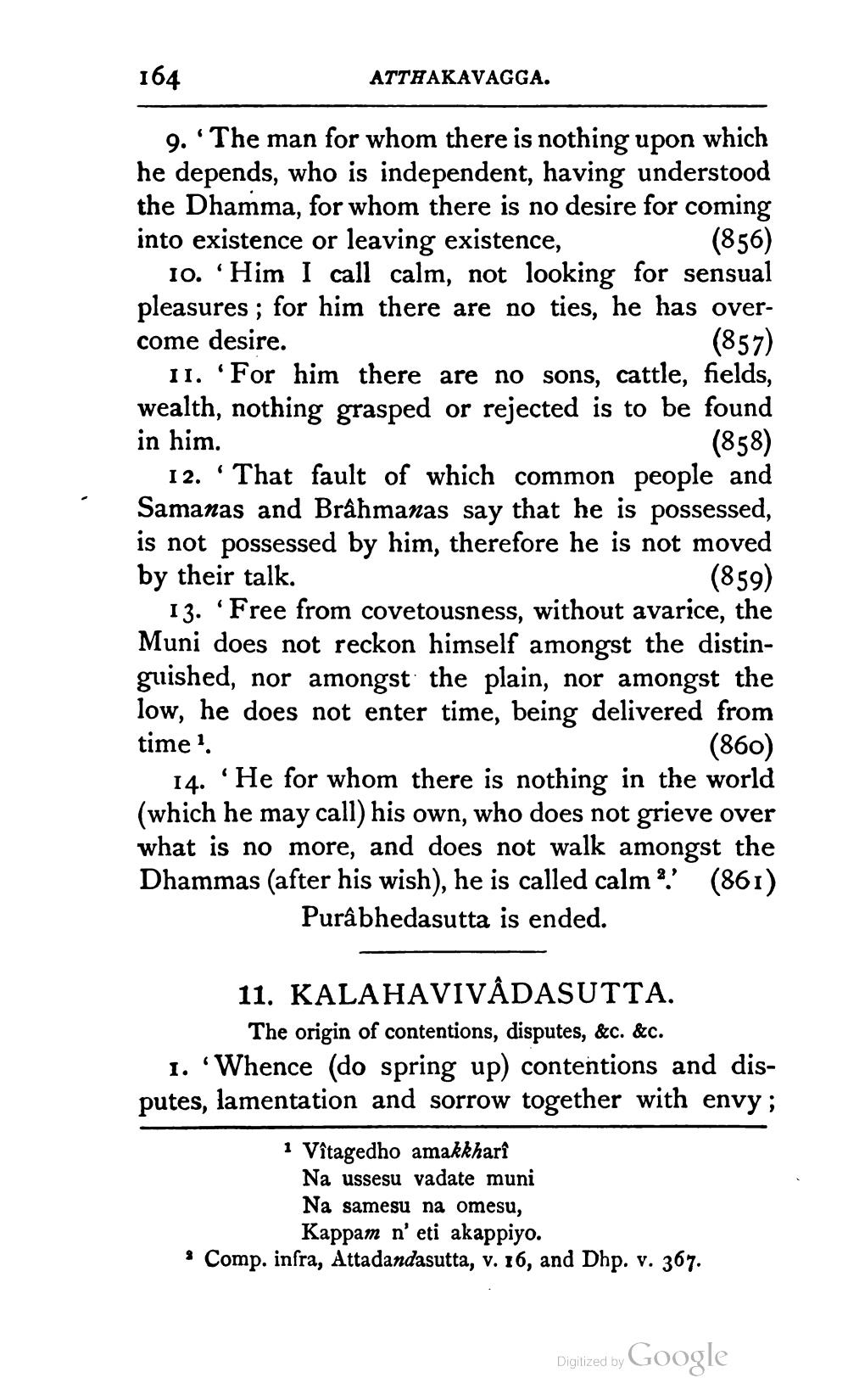________________
164
ATTHAKAVAGGA.
9. 'The man for whom there is nothing upon which he depends, who is independent, having understood the Dhamma, for whom there is no desire for coming into existence or leaving existence,
(856) 10. 'Him I call calm, not looking for sensual pleasures ; for him there are no ties, he has overcome desire.
(857) 11. 'For him there are no sons, cattle, fields, wealth, nothing grasped or rejected is to be found in him.
(858) 12. "That fault of which common people and Samanas and Brâhmanas say that he is possessed, is not possessed by him, therefore he is not moved by their talk.
(859) 13. 'Free from covetousness, without avarice, the Muni does not reckon himself amongst the distinguished, nor amongst the plain, nor amongst the low, he does not enter time, being delivered from time?
(860) 14. 'He for whom there is nothing in the world (which he may call) his own, who does not grieve over what is no more, and does not walk amongst the Dhammas (after his wish), he is called calm 2' (861)
Purâbhedasutta is ended.
11. KALAHAVIVÅDASUTTA.
The origin of contentions, disputes, &c. &c. 1. “Whence (do spring up) contentions and disputes, lamentation and sorrow together with envy;
1 Vîtagedho amakkharî Na ussesu vadate muni Na samesu na omesu,
Kappam n' eti akappiyo. • Comp. infra, Attadandasutta, v. 16, and Dhp. v. 367.
Digitized by Google




